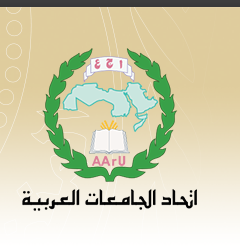Arab Journal of Administration المجلة العربية للإدارة
Article Title
Abstract
Economic crises in general, and financial, monetary and banking crises in particular, are among the main features of the capitalist economic system. And since most world economies at the present time, and after the collapse of the socialist economic system, are based mainly on the application of mechanisms, theories and foundations of that capitalist economic system, it has resulted in this that most countries of the world have become exposed from time to time to these crises and the consequent effects that occur. Most of them are negative effects. In light of the growing wave of Islamic resurrection, with regard to economic studies and applications of the Islamic economic system, especially since the beginning of the second half of the twentieth century, the Islamic economic system itself was strongly proposed and imposed on the level of theorizing, principles and theoretical foundations, and at the same time at the level of practical applications and institutional organizations, and that In the three sub-economic systems represented in the following: 1- The international trading system. 2- The International Monetary System. 3- The international financial system. The Islamic countries in general, and the Arab countries in particular, are considered within the global economic system, and they interact with the course of economic globalization with its three branches. With the increase in the degree of openness of most Islamic and Arab countries to the global economy, it was natural for these countries to be affected by the economic crises occurring at the global level, emanating from the characteristics and behaviors of the capitalist system, businessmen and capitalist institutions in Western countries. The monetary and banking financial aspects in Islamic and Arab countries were among the most affected aspects of the global financial and banking crises. This encouraged those countries, especially in light of the weakness of the capitalist system's ability to cope with these crises, to examine the folds of their economic thinking, to search for the feasibility of implementing and expanding the application and activation of the Islamic economic system with its three main branches (the Islamic trading system, the Islamic financial system. The Islamic Monetary System) in order to avoid the negative effects or at least limit those effects and limit them to the narrowest limits, with the help of the economic policy tools provided by that system, which are considered built in and exist in the structure of this system. Is it possible for the Islamic financial system to provide a good alternative to save the world from the scourge of man-made economic systems in general and the capitalist economic system in particular? This represents the main problem and the real dilemma facing the ability of the Islamic financial system to face this, as will be clear when the study problem is presented.
Recommended Citation
Abdel- Razek, Mahmoud Hamed Dr
(2013)
"The role of the Islamic financial system and institutions in protecting the Arab economy from global financial crises,"
Arab Journal of Administration المجلة العربية للإدارة: Vol. 33
:
No.
2
, Article 6.
Available at:
https://digitalcommons.aaru.edu.jo/aja/vol33/iss2/6

